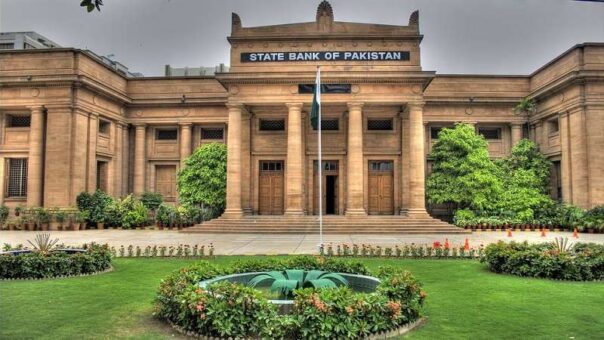KARACHI: State Bank of Pakistan (SBP) on Friday issued following Karachi Interbank Offered Rates (KIBOR) on July 30, 2021.
| Tenor | BID | OFFER |
| 1 – Week | 6.91 | 7.41 |
| 2 – Week | 6.96 | 7.46 |
| 1 – Month | 7.01 | 7.51 |
| 3 – Month | 7.13 | 7.38 |
| 6 – Month | 7.34 | 7.59 |
| 9 – Month | 7.44 | 7.94 |
| 1 – Year | 7.53 | 8.03 |


